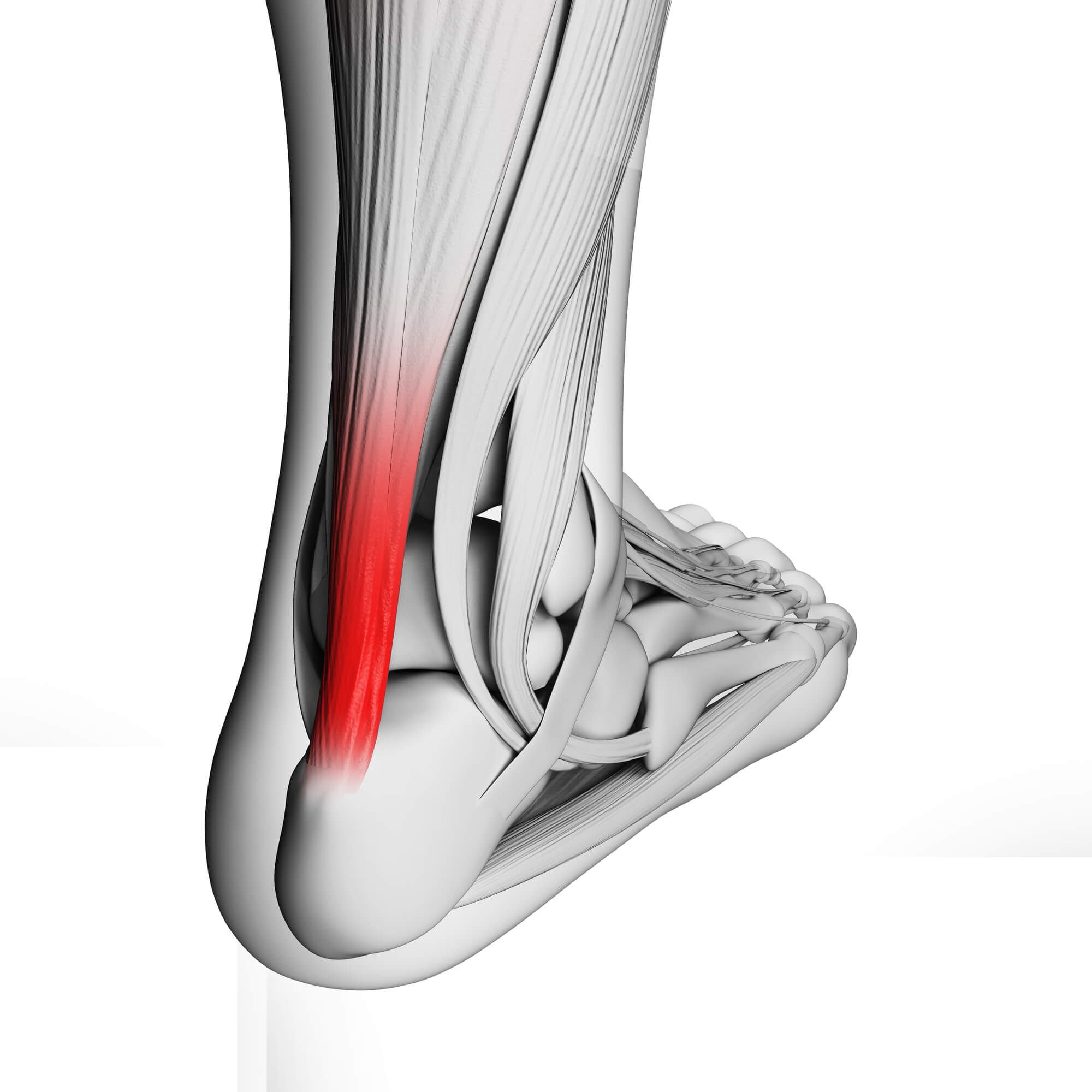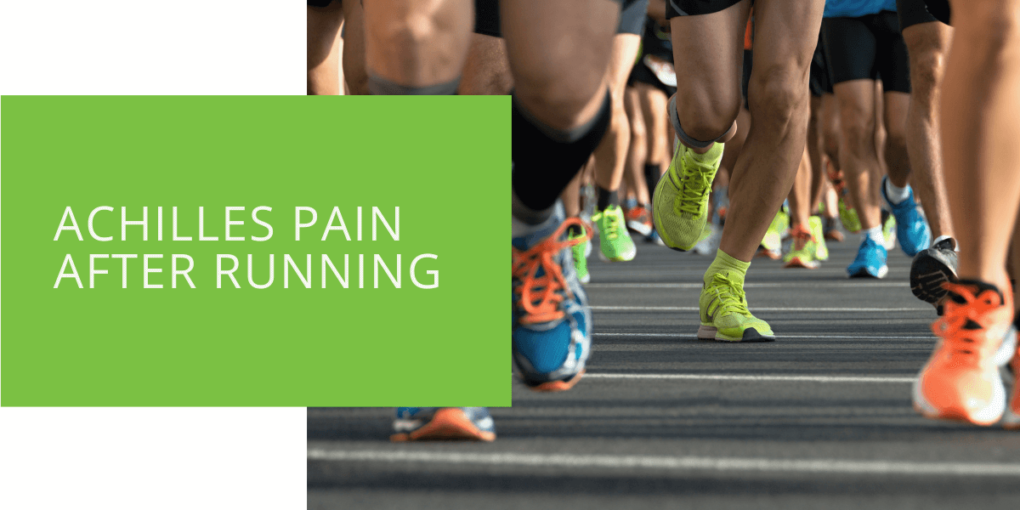Understanding Achilles Pain After Running
Running is an incredible way to stay in shape and improve overall health. However, with great physical activity comes the risk of injury. One of the most common problems runners experience is Achilles pain, a debilitating condition that prevents them from achieving their fitness goals. If you're a runner experiencing Achilles pain, don't let it hold you back. Our comprehensive guide will explore everything you need about Achilles pain, from the causes to the most effective treatment options. Whether you're an experienced runner or just starting, our team of ePodiatrists can help you get back on your feet and keep you running pain-free.
Key Takeaways
- Proper warm-up, stretching, and strengthening exercises can help prevent Achilles pain in runners.
- Pay attention to running form, choose appropriate footwear, and listen to your body to reduce the risk of Achilles injuries.
- If you experience Achilles pain, seek timely treatment and guidance from a podiatrist to ensure a safe and effective recovery process.
The Achilles Tendon: An Overview
The Achilles tendon is the largest in your body, connecting your calf muscles to your heel bone. It plays a crucial role in running, allowing your foot to flex and providing the propulsion for each stride.
Anatomy of the Achilles Tendon
To understand Achilles pain better, it's essential to delve into the anatomy of the Achilles tendon. This robust tendon consists of dense fibrous tissue and is designed to withstand significant force. It's important to note that the Achilles tendon's structure makes it strong and vulnerable to injury.
The Role of the Achilles Tendon in Running
The Achilles tendon is like a spring that stores and releases energy with each step you take while running. The Achilles tendon stretches and stores energy when your foot pushes off the ground. It then releases this energy, propelling you forward. This mechanism is crucial for efficient running but also exposes the tendon to substantial stress, making it prone to issues.
Recognizing Achilles Pain
Before we delve into the causes and prevention of Achilles pain, let's identify the symptoms that you should be aware of:
- Achilles Pain: This is the primary symptom, typically felt as a dull ache or sharp pain along the back of your lower leg.
- Stiffness: You may experience stiffness in your Achilles tendon, making it difficult to move your foot or stand on your toes.
- Swelling: In some cases, there might be swelling in the area around the Achilles tendon.
- Tenderness: The Achilles tendon can become tender to touch, especially where the pain is most concentrated.
- Weakness: You might notice weakness in your calf muscle, affecting your ability to push off while running.
Differentiating Between Achilles Tendinopathy and Tendonitis
While Achilles tendinopathy and tendonitis are often used interchangeably, they represent distinct conditions with different underlying causes and characteristics.
- Achilles Tendinopathy: This term encompasses a range of conditions involving the Achilles tendon. It often involves degeneration, microtears, and failed healing of the tendon. Achilles tendinopathy is typically a chronic issue seen in long-term runners.
- Achilles Tendonitis: This is an acute inflammation of the Achilles tendon, usually caused by overuse or a sudden increase in activity. It presents as a more sudden and intense form of Achilles pain.

Causes of Achilles Pain in Runners
Understanding the root causes of Achilles pain is crucial to effectively preventing and addressing the issue.
Overuse and Repetitive Stress Injuries
Overuse is one of the leading causes of Achilles pain in runners. The repetitive nature of running, especially high-mileage training, can lead to microtears and strain on the tendon. These small injuries can accumulate and result in pain and discomfort.
Poor Running Form and Biomechanics
Your running form and biomechanics play a significant role in Achilles health. Issues like improper foot strike, excessive pronation, or supination can put extra strain on the Achilles tendon. Working on your form is important to reduce the risk of injury.
Footwear Choices and Their Impact on Achilles Health
The shoes you wear while running can protect or harm your Achilles tendon. Ill-fitting shoes or those lacking proper cushioning and support can contribute to Achilles pain. Investing in the right pair of running shoes is essential for injury prevention.
Other Contributing Factors like Back Pain
Surprisingly, problems in other areas of your body, such as lower back pain, can affect your gait and lead to Achilles issues. Addressing these underlying problems is crucial for preventing Achilles pain.
Preventing Achilles Tendinopathy and Tendonitis
Prevention is often the best medicine when it comes to Achilles pain. Here are some strategies to keep your Achilles tendon healthy:
Proper Warm-Up and Stretching Routines
A thorough warm-up and stretching routine can improve blood flow to the Achilles tendon and increase flexibility. This reduces the risk of injury during your run.
Strengthening Exercises for the Achilles Tendon
Strengthening the calf muscles and the Achilles tendon itself can enhance their resilience. Exercises like calf raises help build strength and stability in the area, reducing the chances of injury.
Choosing the Right Running Shoes
Selecting the right running shoes is crucial. Consider getting a gait analysis to determine your specific needs and find shoes that offer adequate support and cushioning for your feet and Achilles tendon.
Listening to Your Body: When to Rest
Perhaps the most critical aspect of prevention is paying attention to your body. If you experience any discomfort or pain from running, especially in the Achilles tendon, it's essential to rest and allow your body to recover fully. Ignoring pain can lead to more severe issues.
Treating Achilles Pain
If you're already experiencing Achilles pain, it's essential to seek treatment promptly. Here's what you can expect:
Initial Home Care for Sore Achilles
Home care involves the RICE protocol – Rest, Ice, Compression, and Elevation. These measures help alleviate pain, reduce inflammation, and promote healing. Rest is especially critical as it gives the tendon time to recover.
The Role of Physical Therapy in Achilles Pain Management
Physical therapy plays a pivotal role in treating Achilles pain. A trained therapist can design a tailored exercise program to strengthen the Achilles tendon and surrounding muscles. Additionally, they can use techniques like ultrasound and massage to improve blood flow and reduce inflammation.
Medical Interventions and Treatments
Medical interventions may be necessary in more severe cases or when conservative treatments aren't effective. This can include corticosteroid injections to reduce inflammation or, in rare instances, surgical repair, particularly for Achilles tendon rupture.
Recovery Timeline for Achilles Issues
The recovery timeline for Achilles issues varies depending on the severity of the injury and the chosen treatment. It's crucial to follow your podiatrist's guidance and adhere to your treatment plan diligently for the best possible outcome.
Running Safely with Achilles Pain
If you're eager to get back to running, here are some tips for doing so safely:
- Gradually increase your mileage and intensity, allowing your Achilles tendon time to adapt to the workload.
- Pay close attention to your form and make necessary adjustments to minimize stress on the tendon.
- Consider custom orthotics or inserts to provide additional support and reduce strain on the Achilles tendon.
- Don't ignore any lingering discomfort or pain from running. It's essential to address any issues promptly to prevent them from worsening.
Conclusion
Understanding and addressing Achilles pain after running is vital for a successful and pain-free journey. You can minimize the risk of injury by taking steps to prevent Achilles issues through proper warm-up, strengthening, and footwear choices. However, if you experience Achilles pain, seeking timely treatment and guidance is crucial to ensure a safe and effective recovery process. Don't let Achilles pain hold you back – take the necessary steps to keep running comfortably and confidently.
At ePodiatrists, we understand runners' challenges when dealing with Achilles pain. Our team of experts is here to provide the guidance and treatment you need to get back to pain-free running. Don't let Achilles pain stop you in your tracks. Schedule an appointment today, and let us help you on your running journey. Your Achilles health is our priority, and we're committed to helping you run comfortably and confidently.

